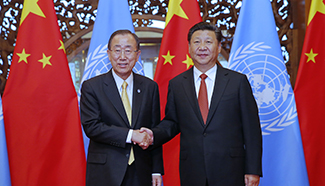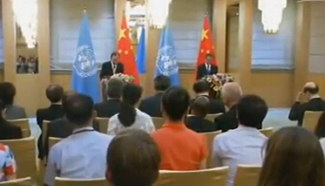BANGKOK, July 7 (Xinhua) -- Negotiations between states directly concerned are the best way to solve the South China Sea disputes, while the coming ruling of the arbitration can only make things worse, a Thai scholar has said.
Natee Taweesrifuengfung, a professor of Thailand's Panyapiwat Institute of Management, expressed his concerns about the upcoming ruling from the Permanent Court of Arbitration in The Hague in a recent interview.
The ruling may escalate disputes as well as threaten the fairness and authority of international conventions, according to the expert.
The tribunal has no right to rule on the case, which concerns maritime delimitation, Natee said, explaining that China made an optional exceptions declaration in 2006 pursuant to the Unites Nations Convention on the law of the Sea (UNCLOS), excluding disputes concerning, among others, maritime delimitation from the UNCLOS third party dispute settlement procedures.
The tribunal said last week that it will announce its ruling on the Philippines' case against China over the South China Sea disputes on July 12.
In order to understand the disputes, according to Natee, it is of paramount importance that concerned parties understand the relevant history and background behind the issue.
Chinese people, he highlighted, came to know the islands currently at odds in the South China Sea as early as in China's Han Dynasty (206 BC-220 AD) and have ruled them since ancient times, long before the UNCLOS, which was signed in 1982.
Treaties, namely the 1898 Treaty of Paris, the 1900 Treaty of Washington and the 1930 Convention Between the United States and Great Britain, stipulate that the west boundary line of the territory of the Philippines is at 118 degrees east longitude, said Natee.
The Philippine Senate Bill 2699 passed in 2009, which incorporated part of the Nansha Islands in its territory, is utterly ridiculous as it is against those treaties that the Philippines has already accepted, he added.
China has reiterated that the tribunal has no jurisdiction over the case and the relevant subject-matter, and that it should not have heard the case or rendered the "award."
China has also called on the Philippines to work with China to use the power of negotiation to solve disputes on the South China Sea.
Natee emphasized that it is in the best interests of the Philippines to return to the bilateral negotiating table with China in order to settle the disputes.










